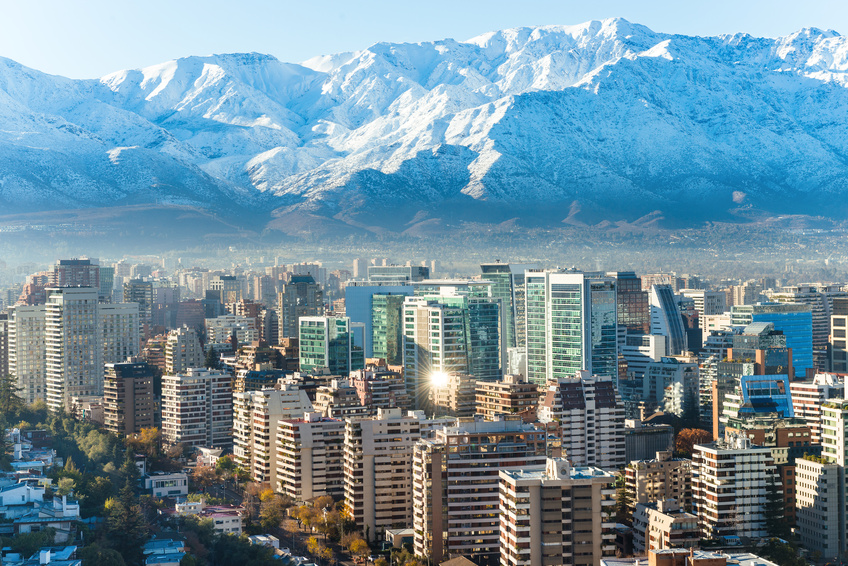Primary foreign anti-bribery legislation and enforcement agencies
Criminal Code 1874 (CP), numerous amendments throughout the years
Law 20.393, 2009 “establishes Criminal Liability for legal entities arising from certain felonies of money laundering, terrorism financing and bribery of public official.” It must be remarked that receiving of stolen goods (“receptación”), was recently added to the list of base felonies by Law 20,931, dated July 5, 2016.
Prohibits bribery of foreign and domestic (CP) public officials
Investigating agency: Public prosecutor office/ delegated police agencies
Prosecuting agencies: Public prosecutor office
Offenses
Bribing National and Foreign Public Officials
The Chilean Criminal Code sanctions any public official who:
- requests or agrees to receive fees greater than those applicable to the office he holds, or an economic benefit in his or her or a third party’s benefit, in consideration for performing or having performed an act within the purview of his or her office;
- requests or accepts an economic benefit for his or her own or a third party’s benefit, in consideration for refraining or having refrained from performing an act pertaining to his or her position, or for the execution of an action in contravention of his or her statutory duties; or
- requests or accepts to receive an economic benefit, for his or her own or a third party’s benefit, in order to commit certain other special public official crimes (i.e., embezzlement, crimes against individuals’ constitutional rights, etc.).
Any person who offers or agrees to offer an economic benefit to a public official who performs any of the abovementioned actions is also punished under criminal law.
Bribing Foreign Public Officials
It is a criminal offense to:
- offer, promise or give an economic or other benefit to a foreign public official, for such public official or a third party’s benefit, in order for the foreign public official to act or refrain from acting, for the purpose of obtaining or retaining for him or herself or for another party any business or unfair advantage in the course of international business transactions;
- offer, promise or give such a benefit to a foreign public official as consideration for past performance of such an action or omission; and
- consenting or agreeing to give or provide such a benefit.
Defenses to these offenses
- General defenses that CP sets for any criminal offense, no specific defense
- In principle, “facilitation payments” are not allowed.
Corporate liability arises under Law 20,393 if owners, controllers, parties in charge, main executive officers, representatives or whoever performs management and monitoring activities, as well as any individuals under direct control or monitoring from any of the abovementioned parties, commits bribery, money laundering or financing terrorism or receiving, and if the legal entity has failed to establish the detailed crime prevention model established by the law.
Extraterritorial application
In case of bribery
Penalties – Criminal and/or Civil liability
For an individual
The maximum penalty is imprisonment of up to five years and a fine from one to two times the amount of the benefit requested or accepted; if the benefit is not of economic nature, a fine of up to 1,000 UTM (approximately USD69,000 at the current exchange rate).
For bodies corporate
- Dissolution of the legal entity or cancelation of its legal capacity
- Temporary or permanent prohibition from executing acts and agreements with state institutions
- Partial or complete loss of fiscal benefits, together with the complete prohibition to receive said benefits during a specific period
- Fines for the treasury’s benefit
- Ancillary Penalties – The law establishes that the following ancillary penalties may be applied in addition to those previously detailed: publication of an abstract of the ruling in the Official Gazette or in another newspaper that is published nationwide; confiscation of any products derived from the crime, as well as confiscation of other assets, objects, documents and instruments pertaining to the same; and, in those cases in which the felony involves making an investment that exceeds the legal entity’s income, the deposit of a sum equivalent to such investment in an account held by the treasury.
This list is to be used as a guide only. It is intended to provide high level information regarding the primary laws in the specified countries in relation to anti-bribery and anti-corruption laws. Please refer to the relevant legislation for detailed information and to ensure that the information contained in this guide is up to date, and refer to the relevant Baker McKenzie contact for the jurisdiction for specific advice.
